Call Live Support


So many lenders have made getting a mortgage difficult for self-employed individuals looking to apply for a mortgage. But, lucky for you, you’ve come here. We’re going to break down the process of how to get a self-employed mortgage.
Getting approved for a mortgage program for self-employed individuals shouldn’t be as difficult as some people make it. Let’s talk about how we can help you navigate a self-employed mortgage in Canada.
If you’re a self-employed individual and you’re looking to get approved for a mortgage, you’re going to have a self-employed mortgage.
More broadly, a self-employed mortgage can be a residential mortgage for a home or a commercial mortgage for a commercial property such as a business. In either case, the owner or purchaser of the property must be someone who is self-employed or owns their own business or corporation.
Since those who are self-employed have to prove their finances differently from a salaried employee, the application and approval process for a self-employed mortgage is much different than the average process. Sometimes, self-employed individuals don’t have a net income that is large enough for the typical mortgage in Canada.
Because of all of the hoops that self-employed individuals have to go through, many of these people begin feeling frustrated by the loan approval process.
Call us today to speak to a licenced mortgage broker.
When it comes to our self-employed clients, we offer two different methods for home loan applications. These methods also apply to those of you who receive a T4A from your employers and are responsible for your own taxes.
Let’s review how you can use each method to your advantage as one of Canada’s many business owners.
For this first method, our team will evaluate your notice of assessment over the past two years. You should receive a notice of assessment every year from the Canada Revenue Agency. This is a document showcases the government’s evaluation of your tax return.
Your notice of assessment will show us the income that you’ve claimed for the years that the documents were for. The lender will take the average of the last two years of income if the income of the most recent year is higher. If the most recent year’s income is lower, the lender will take the lower income since the income has decreased.
However, most self-employed individuals don’t declare their full income on their tax returns. Therefore, their notice of assessment doesn’t show their full income.
With several kinds of tax write-offs, self-employed individuals are able to deduct expenses while claiming credits. This gives a flawed view of the individual’s income.
If you feel that your notices of assessment may give a false view of your income, we highly recommend that you consider the second method.
For self-employed individuals, securing a mortgage may pose unique challenges due to the unconventional nature of their income. However, using bank statements can offer a practical solution, providing a clear picture of the cash flow and, hence, the ability to pay the mortgage. This method emphasizes the liquidity and financial stability of the applicant over the traditionally used income statements or notice of assessments.
Individuals can choose to use either business or personal bank statements to showcase their income. These statements accurately reflect the inflow and outflow of money, offering a realistic representation of one’s earnings and spending patterns. For instance, a graphic designer who has fluctuating income due to project-based work can use bank statements to demonstrate consistent cash flow, even if their income varies each month.
A closer look at the last six to twelve months of bank statements can help lenders annualize your earnings and determine the viability of granting a stated income mortgage. For example, if a freelance writer has earned a total of $60,000 in the last six months, this could potentially be annualized to $120,000 for the year, offering a robust indication of their earning capacity and financial stability.
Utilizing bank statements for mortgage loans can be particularly beneficial for those with inconsistent income reports on their notices of assessment or those with a relatively short self-employment history. It can be an optimal choice for newly self-employed individuals or those whose recent income doesn’t align with older income records. For instance, a newly established independent consultant with substantial cash flow but limited formal income history can leverage bank statements to establish their financial credibility.
If you’ve experienced a change in income, perhaps due to transitioning to self-employment or experiencing fluctuations in your earnings, opting for bank statement-based applications can be advantageous. This method accommodates variations in income, allowing for a more nuanced and realistic assessment of one’s financial status. It can cater to those who may have a surge in income due to a recent business expansion or a shift in business model, offering a more current view of their financial health.
This approach to mortgage qualification acknowledges the diverse income structures inherent to self-employment, promoting inclusivity and flexibility in mortgage approvals. It extends opportunities to a wider range of applicants, allowing them to secure mortgages based on their actual financial standing rather than restrictive traditional criteria.
By focusing on actual cash flow and financial behavior, using bank statements for mortgage applications empowers non-traditional earners, like freelancers, contractors, and entrepreneurs, to access mortgage options more seamlessly. It fosters financial inclusivity, ensuring that diverse professional paths and income structures are recognized and accommodated in the mortgage approval process.
Leveraging bank statements for mortgage qualification emerges as a pragmatic, inclusive, and realistic approach, especially for self-employed individuals with non-traditional income structures. It allows for a comprehensive understanding of one’s financial landscape, considering actual cash flows and spending patterns over rigid income statements, and thereby widening the accessibility to mortgages for varied professionals. Whether you are newly self-employed, have fluctuating income, or have recently experienced a change in your earnings, utilizing bank statements can offer a balanced and flexible route to securing a mortgage that aligns with your unique financial narrative.
If you’re worried that a mortgage lender may not approve your mortgage application, there are several steps that you can take to strengthen your application. The more information that you can give the mortgage lender, the better off your application is.
Let’s talk about the details that a loaner is going to want to see from you:
Credit scores greatly affect the fate of any loan application. If you want to nearly guarantee an approved application, you need to have a good credit score.
Unfortunately, there is one big problem that business owners have with credit scores: debt. Businesses – especially small businesses – are notorious for going into a large amount of debt before they are financially stable.
As long as you’re making your payments, this isn’t a problem. However, sometimes these payments can cause business owners to hurt their credit score via missed and late payments.
In addition to making sure that you make payments on-time, you should have several different lines of credit. From credit cards and car loans, you should have a profile for the mortgage lender to look at. They’ll be able to see your credit history for the past seven years, so you should try to perfect your credit habits during the few years before you apply for a mortgage.
If you can, we suggest that you offer a higher down payment for the mortgage loan. Usually, mortgage lenders will state a minimum down payment that they require everyone to pay. However, it may be best to go over this amount.
If you pay a higher amount up-front, you’ll have greater equity in your home. Those who have more equity in their home are less likely to give up on the home when their financial situation is more difficult.
Plus, if you pay a higher down payment, you’ll have less to owe the lender later.
If you’re qualifying for a mortgage through your bank statements, you must pay 20% down. However, if you’re qualifying through your notices of assessment, you’re required to pay 10% down when purchasing an owner-occupied home. Standard Canada Mortgage and Housing Corporation insurance will apply on down payments up to 20%.
The less debt you have, the better. Not only is it less for you to pay for. But, it also looks great to mortgage lenders.
Even if you never accumulated much debt, it shows your lenders that you can handle the payments that you currently have.
We want to clarify that having debt isn’t bad. You can use debt intelligently. However, you should be careful not to let debt take over.
The longer you’ve been self-employed, the more trustworthy your financial situation appears to your mortgage lender. If you can sustain self-employment financially for a long amount of time, this shows the mortgage lenders that your job is more stable.
Luckily, self-employed individuals have shown longevity in their careers overall. The longer you’ve been self-employed, the more that you prove that your job is a long-term commitment.
For those of you who are applying for a mortgage with your bank statements, a minimum of two years as a self-employed individual is required. Sometimes, lenders make exceptions based on the down payment and employment history.
More information is always better. You should keep track of your business records for the past several years.
The better organized your information is, the faster you can get the information to your mortgage lender. If your records are disorganized or you aren’t able to locate information, this may come off negatively to your mortgage lender. They may be less likely to trust your ability to handle a mortgage.
We recommend gathering your financial information before you apply for a mortgage. This will keep everything within reach whenever you need it.
Get A Free Self Employed Mortgage Quote. See How Much Equity You Can Borrow, With Rates & Payment Options.
For self-employed individuals with less-than-perfect credit, securing mortgage financing may seem daunting. However, credit scores are just one piece of the puzzle, and there are alternative routes and considerations that can increase the likelihood of mortgage approval.
Alternative Lenders like B Lenders adopt a common sense approach when assessing mortgage applications, where the credit score is merely one aspect among several. They evaluate the overall picture of the application to guage the applicant’s financial stability and repayment capability. Here, elements like the amount of down payment, existing debt ratios, and ownership of other properties play a crucial role in the decision-making process.
A substantial down payment can significantly bolster the strength of the mortgage application, acting as a reassurance for the lenders. For instance, a self-employed graphic designer with a poor credit score but able to make a 20% down payment may be viewed more favorably by lenders, as it reduces their risk exposure.
The level of existing debt is another critical factor in mortgage approval. Individuals concerned about high debt ratios should explore options with alternative lenders, known for their flexibility and higher tolerance for debt-servicing ratios compared to conventional banks.
Alternative lenders offer enhanced flexibility, permitting Gross Debt Service (GDS) ratios and Total Debt Service (TDS) ratios up to 60% of the applicant’s income, compared to the 39% (GDS) and 44% (TDS) typically allowed by traditional banks. This flexibility can be a boon for self-employed individuals with varied income structures, enabling them to secure mortgage financing despite higher debt levels.
The final decision by the lender is based on the overall robustness of the application, not solely on the credit score. Therefore, self-employed individuals with poor credit should focus on optimizing other aspects of their application, such as reducing debt levels and increasing down payments, to enhance their chances of approval.
Individuals with high debt ratios or inadequate credit scores may find solace in non-traditional or alternative lenders. These lenders often have more relaxed criteria and are willing to consider applicants who may not meet the stringent requirements of traditional banks, thus providing a viable route for mortgage financing to a wider range of self-employed individuals.
If you don’t think refinancing is an option for self-employed individuals, think again.
Mortgage refinance for self-employed individuals is definitely possible. Plus, it’s a great way to provide relief for business owners who may be going through a rough economic period.
Mortgage refinancing is a great way for individuals with existing mortgages to readdress the terms of their agreement and take out equity from their home. The individual could want a lower monthly payment, a lower interest rate, a shorter term, or money from the appreciation of their home.
Whatever their preference, mortgage refinancing gives the individual the power to look for a better deal than their initial mortgage. Once they’ve talked to various lenders and found a deal that they like, they can pay off their first mortgage and start making payments on their new one.
Mortgage refinancing is also a great way for individuals to consolidate their debt. For those of us who have bills upon bills piling up, debt consolidation for self-employed homeowners is a safe idea for handling those stacking bills. It allows the individual applying for the new mortgage to combine the amount left on their existing mortgage with other debts that they may have.
By taking the loan in and redistributing the money to their creditors with debt, they can work on paying off one payment a month rather than paying several. It is usually more affordable and leads to less accumulation of interest.
Refinancing your mortgage isn’t easy through the banks, especially for self-employed individuals. This means that the qualifications for these mortgages are more difficult. The major banks are regulated in such a way that they require self-employed individuals to claim higher income on their NOA’s (notice of assessments) and the declared income can be used to qualify for a mortgage. The challenge with this is that most self-employed homeowners don’t declare their true income as they have expenses and write-offs applied against their income.
Alternatively, there are special mortgage programs such as the bank statement mortgage, also known as the stated income mortgage, which allows self-employed homeowners to refinance up to 80% of their home value, using their 6 months business bank statements to qualify. The qualification is based on the cash flow of the business in the last 6 months.
If a self-employed homeowner doesn’t qualify under the bank statement mortgage program today, it doesn’t mean they won’t qualify in the future. Many self-employed homeowners will take out a second mortgage or home equity loan to consolidate their debt or use it for business expenses, for a period of 1 year, until their business starts to accumulate a better history of deposits going in the business bank account. As the second mortgage term is approaching renewal, and the business bank statements are showing stronger deposits, we can combine the existing first and second mortgages into one mortgage.
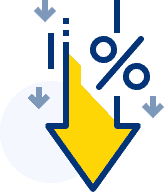
Low self-employed mortgage rates from top Canadian lenders and banks
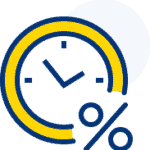
Get approved same day or in 24 hours for self-employed mortgages.
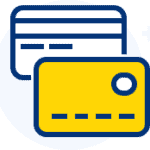
Good and bad credit home equity loans available. All credit types welcome.
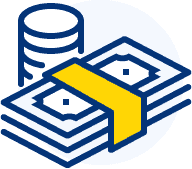
Get approved with your bank statements, not notice of assessments.
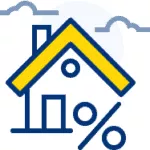
Got equity? Access your equity with ease. You're approved on equity.
Self-employed homeowners and homebuyers get approved with bank statements, not notice of assessments. Get approved with your business cashflow, instead of NOA’s.

Get your free Debt Consolidation Mortgage Quote

Confirm business cashflow with bank statements for 12 months.

Get your self-employed bank statement mortgage.


We take pride in taking the time and effort to match up every individual homeowner and homebuyer with the best mortgage financing options and rates. With access to more than 200 participating mortgage lenders, there are mortgage solutions for all types of borrowers. We listen and understand your mortgage and real estate goals, and find the best mortgage terms tailored to your specific goals to save you thousands of dollars on your new mortgage.

(No Obligation)